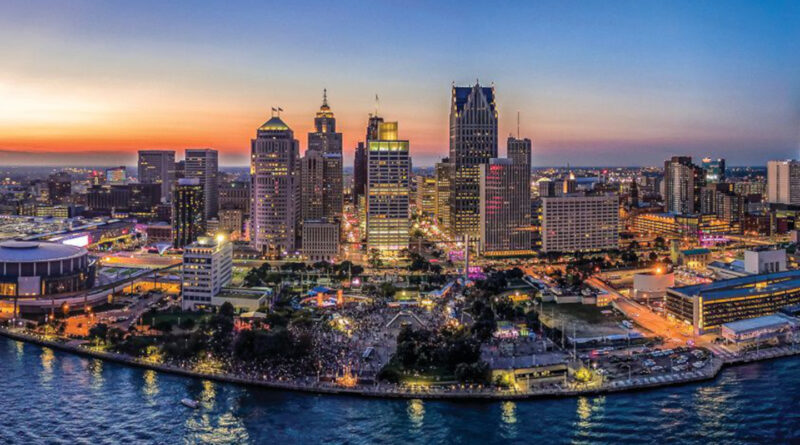History of Detroit Michigan
Detroit, the largest city in the state of Michigan and a major center of American industry, has a rich and complex history. The area that is now Detroit has been inhabited for thousands of years, with various indigenous tribes living in the region before European settlers arrived in the late 17th century.
French explorer Antoine de la Mothe Cadillac founded the city of Detroit in 1701, and it quickly became an important center for trade and commerce. The city’s strategic location at the confluence of the Detroit River and Lake St. Clair made it a natural hub for transportation and shipping, and it soon became a major destination for European settlers and traders.
During the 19th century, Detroit’s economy boomed as it became a major center for manufacturing and industry. The city’s proximity to the Great Lakes and the abundance of natural resources in the region made it an ideal location for the production of goods such as automobiles, steel, and other industrial products. The city’s population grew rapidly, as immigrants from all over the world flocked to Detroit to work in the factories and mills.
In the early 20th century, Detroit’s automobile industry took off, with the founding of companies such as Ford, General Motors, and Chrysler. These companies revolutionized the way cars were produced and sold, and they helped make Detroit one of the wealthiest and most prosperous cities in the United States.
However, the city’s fortunes began to change in the mid-20th century. The rise of foreign competition and the decline of the American automobile industry hit Detroit hard, and the city’s economy began to suffer. Many factories and mills closed, and unemployment and poverty rose.
In the 1960s and 1970s, Detroit was wracked by racial tensions and social unrest. The city’s large African American population, many of whom lived in poverty and had limited opportunities, began to demand greater social and economic equality. This led to a series of riots and protests, and the city’s reputation as a place of violence and decay began to take hold.
The city’s decline continued in the following decades, as the population continued to shrink and the economy continued to struggle. In 2013, Detroit became the largest American city to file for bankruptcy, and it took the city several years to recover.
Despite the challenges it has faced, Detroit has managed to reinvent itself in recent years. The city has seen a resurgence of its downtown and midtown areas, with new businesses, restaurants, and cultural institutions opening up. The city has also invested in public transportation and infrastructure, and it has become a major center for technology and innovation.
Today, Detroit is a city that is working to overcome its challenges and build a brighter future. With a rich history and a diverse population, the city is an important cultural and economic center that is poised to play a major role in the 21st century.
Detroit has a long and complex history that has been shaped by its strategic location, abundant natural resources, and the hard work and determination of its people. From its early days as a French trading post to its rise as a major center of American industry, Detroit has faced many challenges and overcome many obstacles. Today, the city is working to build a new and better future, and it remains an important and vibrant part of the American landscape.
Discover more from City Towner
Subscribe to get the latest posts sent to your email.




